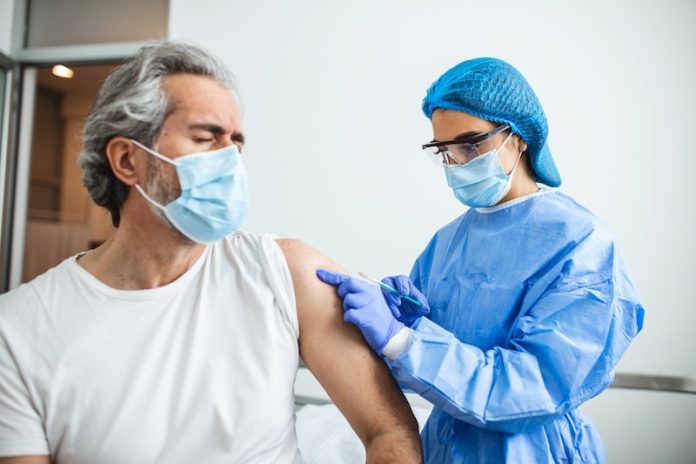
Researchers from the University of Massachusetts Amherst have propelled the domain of cancer immunotherapy by theoretically demonstrating that a protein antigen from a childhood vaccine could be redirected into the cells of a malignant tumor, subsequently rallying the body’s immune system to combat the cancer and prevent its return.
The groundbreaking research emerges from the Forbes Lab at the Institute for Applied Life Sciences (IALS) and brings a hopeful perspective towards managing challenging cancers, such as metastatic breast, liver, and pancreatic tumors.
Navigating the Bacterial Intracellular Delivering (ID) System
Employing a non-toxic variant of Salmonella, the bacteria-based ID system ingeniously introduces a drug—here, a vaccine antigen—directly into a solid-tumor cancer cell.
Neil Forbes, the professor of chemical engineering and senior author, envisages this bacterial system as a versatile off-the-shelf immunotherapy, capable of potential application across a diverse spectrum of cancer patients, as stated in a paper published on October 5th in Frontiers in Immunology.
Repurposing Immunization to Target Cancer
The innovative approach takes advantage of the body’s established immunization against certain antigens, redirecting it to target cancer cells.
Despite the inability of cancer cells to present viral molecules on their surface, the researchers explored the possibility of employing Salmonella to transport a molecule inside the cancer cell, prompting the immune system to assault the cancer cell as though it were an invasive virus.
In an empirical application of this theory, the team genetically engineered ID Salmonella to transport ovalbumin (a chicken egg protein) into the pancreatic tumor cells of mice previously immunized with the ovalbumin ‘vaccine.’
Notably, the protein disseminated throughout the cytoplasm of cells in culture and tumors, inciting an antigen-specific T-cell response in the cytoplasm that attacked the cancer cells, eliminating 43% of established pancreatic tumors and substantially extending survival.
Implications and Forward Path
Upon attempting to re-introduce pancreatic tumors in the immunized mice, the findings were notably optimistic.
Forbes reports that “none of the tumors grew,” indicating that the mice had developed immunity not only to the ovalbumin but to the cancer itself, as their immune system learned to recognize the tumor as immunogenic.
Further investigation is underway to comprehend this mechanism.
UMass Amherst has applied for a patent, intending to license it to Ernest Pharmaceuticals, an IALS startup co-founded by Forbes, first author Vishnu Raman, and bioengineer Nele Van Dessel. With the goal to obtain FDA approval, they aim to initiate clinical trials within the coming years.
Commitment to Making a Difference
While the initial focus will be on liver cancer, followed by pancreatic cancer, the findings hold promising implications for the future of cancer therapy, transcending purely academic interest.
Forbes, driven by a personal connection—his grandfather, after whom Ernest Pharmaceuticals is named, passed away from prostate cancer—is ardently dedicated to developing a viable cancer therapy.
In summary, this innovative approach intertwines intricate cellular biology with immunotherapy, illuminating a promising avenue towards cancer treatment that not only seeks to halt the progression of malignant tumors but also endeavors to prevent recurrence by harnessing the body’s own immune defenses.
The scientific and medical communities will undoubtedly follow subsequent developments and trials with keen interest, hoping for a future where such therapies could be a standard and effective approach in combating cancer.
If you care about cancer, please see recent studies about new way to increase the longevity of cancer survivors, and results showing new way to supercharge cancer-fighting T cells.
For more information about health, please see recent studies about how drinking milk affects risks of heart disease and cancer and results showing that vitamin D supplements could strongly reduce cancer death.
The research findings can be found in Frontiers in Immunology.
Follow us on Twitter for more articles about this topic.
Copyright © 2023 Knowridge Science Report. All rights reserved.



